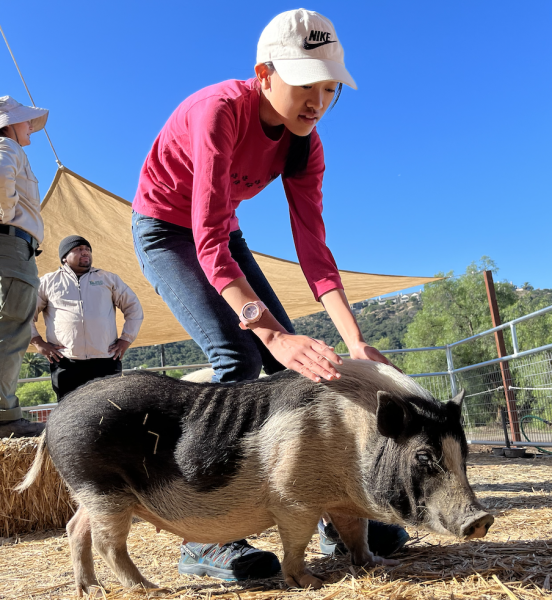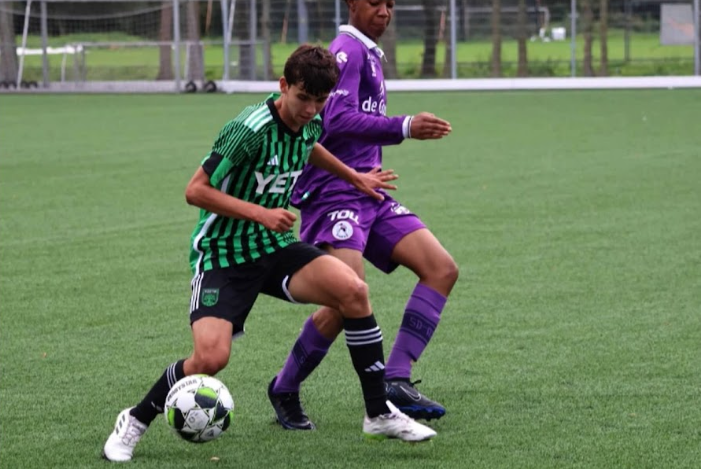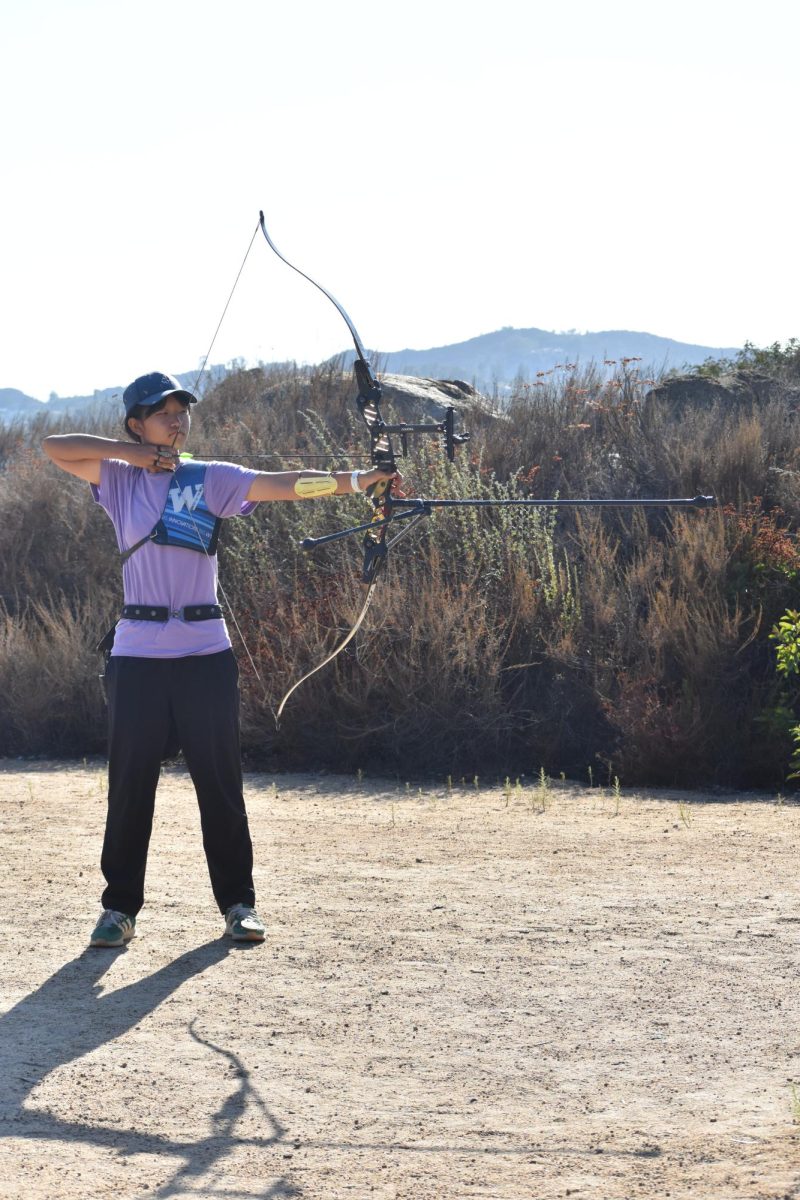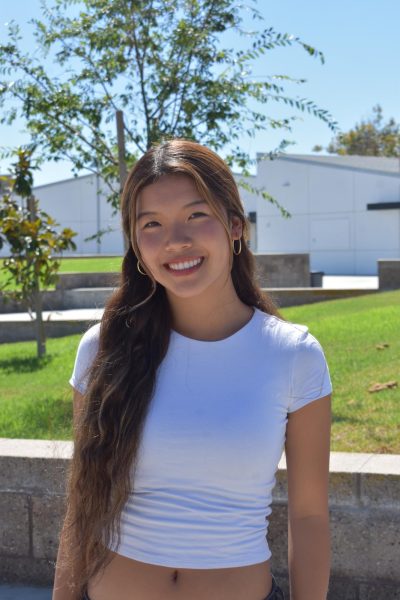
On a warm afternoon, Elizabeth Weng (11) knelt in the hay brushing Doris’s spotted coat, the smaller of two pigs she helps care for at the Los Penasquitos Ranch House. Nearby, Winnie, the larger pink pig, nudged toward the feed bucket, hoping for extra scraps.
“I feed them, teach them tricks, and fill up their water bowls and their mud pit,” Weng said. “I just like to show them lots of love, like brushing them and having fun with them.”
Beyond simply admiring their cuteness, Weng said she discovered just how intelligent pigs are. With practice, she has even managed to teach the pigs simple commands.
“I think pigs are actually one of the smartest animals,” she said. “They can be as smart as a third-grader. We were able to train them to sit kind of like dogs.”
Not only did the pigs perform the tricks that she taught them, but they started finding their own ways to communicate with her. Weng said that the pigs never seemed to stop amusing her with their clever behavior.
“The main thing both of them really want is food, but they’re really sneaky sometimes in the way they get food,” she said. “Sometimes they’ll take the food and hide it in the hay and store it for later, so I found that really interesting because I thought they would just like to eat it all right away. Later, they would try [to] nudge us or convince us to give them more [food], so they’re pretty smart.”
Though she works with both pigs, Weng admits she has a favorite.
“My favorite is the smaller one, Doris, but my mom’s favorite is Winnie, the bigger one, so we kind of disagree on that,” she said. “Sometimes Doris really acts like Winnie is being mean to her, but then that makes us want to give her more food to make up for it. ”
Weng’s journey of taking care of animals began early on in her life. She had volunteered at Los Penasquitos Ranch House in middle school to take care of goats and chickens before pigs were part of the ranch. She said her time spent outdoors has affected her academic and career choices.
“Part of it did influence me to explore some things environmentally related,” she said. “Last year I took APES, and one reason I took that was because I was inspired from volunteering at the park. I haven’t decided on my career yet, but I am thinking about going into something that can merge healthcare and environmental science.”
Weng said the experience she has accumulated from volunteering has shifted how she views parks and the effort that goes into keeping them functioning.
“I got to see how many different things our parks do for us,” she said. “I never really saw how much work went into managing a park and taking care of it. So now I really appreciate that whenever I go to a new national park. Doing tree planting and taking care of the animals has also let me see the many wonderful things that nature provides us with.”
Weng said that she values the therapeutic enjoyment she gets around the pigs the most.
“I kind of see them as therapy dogs,” she said. “They’re really comforting and fun to be with. Being in high school, I feel like it can be very stressful, so seeing them is kind of like how people cuddle their dogs, because that’s comforting for them. I just think volunteering is a really inspiring and rewarding experience.”



![Valen Miao (9) [front] paddles in a dragon boat for Chinese Youth Dragon Boat, Sept. 13. Miao has been racing for one year.](https://wvnexus.org/wp-content/uploads/2025/09/Dragon-Boat-1200x491.jpg)

